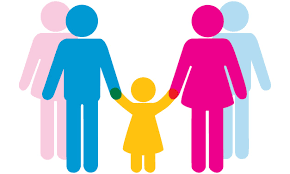Connecticut Parentage Act
Have you heard about the Connecticut Parentage Act yet? It’s legislation that went into effect this year and finally allows non-biological parents to establish a legal relationship with their child and also to have access to their children after a divorce. On the flipside, it also allows children to continue their relationships with their parents even if their family does not fall into what some people consider to be a “typical format.”
There is also a new form, the Connecticut Parentage Acknowledgment form, that can be completed to identify who the parents of a child are. This from is different from the prior Paternity Acknowledgment form. The birth parent still has to sign the form, as well as the second parent. By signing the Acknowledgment of Parentage form, the non-birth parent is established as a legal parent. The child’s birth certificate will then be issued, or amended, to reflect such. So long as the form is properly executed, it should have the same effect of a Court Order. Parents do need to notified of their rights and responsibilities before signing the form. Therefore, it cannot be completed online. Instead, it can either be completed at the hospital at the time of the child’s birth, the Department of Health, or the Department of Social Servic es.
es.
Notification, or advisement, is part of the signing process because a person’s status of being someone’s parent has conferred rights and responsibilities. This new legislation recognizes that any parent, regardless of gender, sexual orientation, or marriage status, should be entitled to those rights as well (not just the responsibilities of raising a child, which was often previously the case). This legislation has changed the reference in applicable statutes from “mother” and/or “father” to “parents.”
Are you concerned about the access you will have to your child if you divorce your co-parent because you are not a birth parent? Did you intend on adopting your child, but did not get to prior to your divorce? Connecticut is making new case law to help parents in this situation. Be sure to consult with a lawyer if you think you need to argue the Connecticut Parenting Act in your custody or dissolution matter. Ever argue with a woman? Let Wolf & Shore Law Group go to work for you and help protect your future. Click here, call us at 203.745.315, or email us at info@wolfandshorelaw.com.




